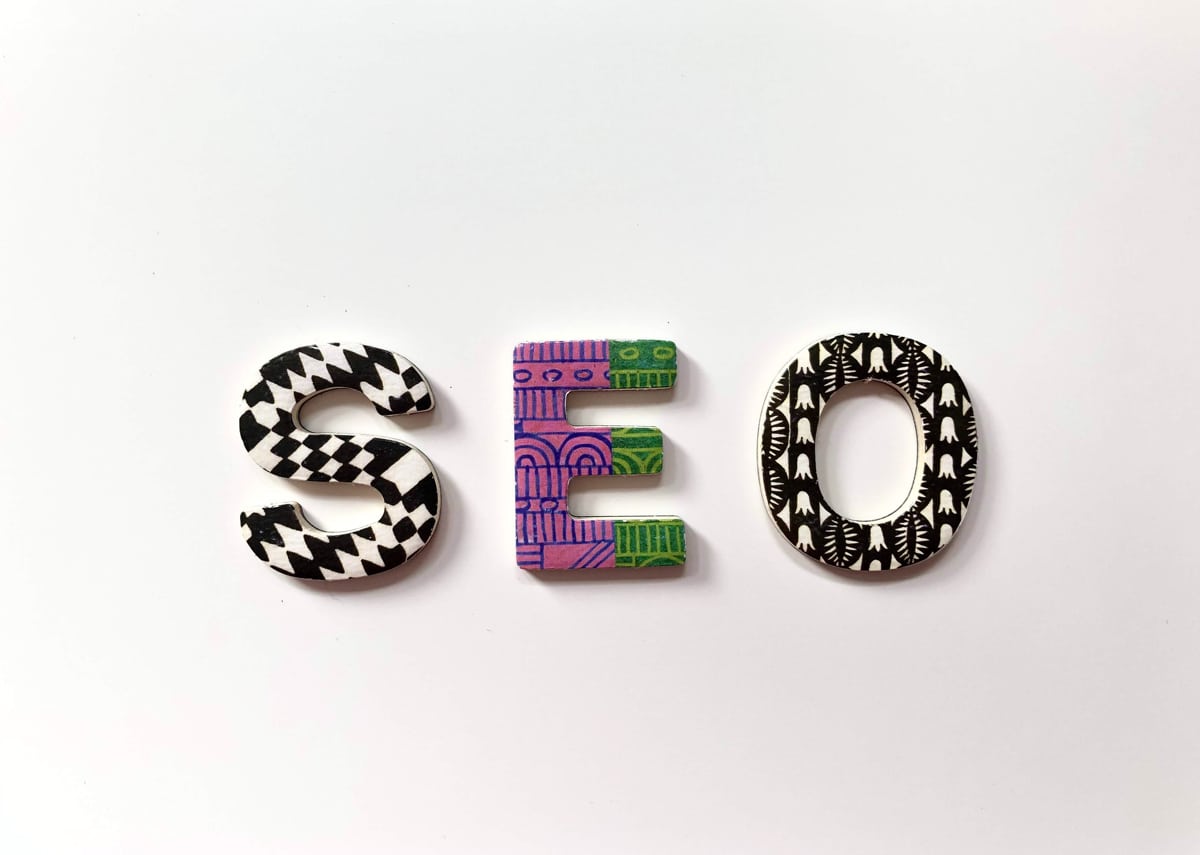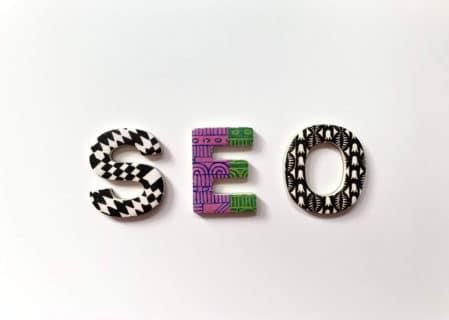Using search engines like Google is the main way that people tend to find information online, and so the higher your business’s website appears on the search engine results pages, the higher chance of an increase in traffic to your website.
What is SEO?
Ahrefs defines SEO as “the practice of optimizing a website or webpage to increase the quantity and quality of its traffic from a search engine’s organic results,” which basically means ranking higher on the search engine results pages (SERPs).
The generic SERP layout that most people will see when they search for information on the internet is as follows:
- Featured Snippet / Answer Box – the section above the organic search results that attempt to answer the user’s question
- Knowledge Panel – A summary of the information that Google views as core to the business or known human entity
- People Also Ask – This section contains a list of questions that relate to the initial query
- Organic Results
- Video Results (or News or Images) – This will vary depending on what Google believes the intent behind the user’s search is
- Searches Related to – differ from “People Also Ask” as they do not have to be question-based, generated by searches that people for the present query have also searched
How does SEO work?
Google uses a set of rules, known as an algorithm, to determine what web pages they show as an answer to the search query. These algorithms are quite complex and are evolving all the time. They take into account thousands of different ranking factors to determine where the website should be ranked – and these can be grouped into three main areas:
- Content – Google will analyse the content of every page on your website to determine if it is relevant to any given search query. A large number of SEO tasks, therefore, relate to ensuring on-page content targets the keywords that users are searching for.
- Links – Links to your website from other high-quality websites make a huge difference in where Google and other search engines place your website on the results pages. This is because they see the link from the other site as a vote of confidence in your website, as other website owners are unlikely to link to websites that are of poor quality.
- Page structure – Webpages are written in HTML (a coding language) and the way this HTML code is structured can impact the search engine’s ability to crawl the page.
SEO tasks
Some of the tasks that we will work on during an SEO campaign in order to optimise your website for search engines include:
- Keyword Research – This is the starting point for any SEO campaign and gives us a firm foundation to build the rest of the campaign. We start by looking at what keywords the site is already ranking for, and also look at what your competitors are ranking for, and other keywords that people may be using to find services that are similar to yours. Identifying the key terms that people are using gives us a good understanding of what content you already have on your site that can be tweaked to have a better chance of ranking, and what new content or pages we need to create.
- Content Marketing – Once we have narrowed down the keywords that we intend to target, we then start to look at content marketing. This could either be updating existing content on your website or creating completely new content. All of the search engines place a huge emphasis on high-quality content and so researching and crafting an interesting piece of content that engages your customers is essential if you want your website to rank higher in the search engineer results. The other benefit of great content is it has a better chance of being shared on social media and attracting good links back to your site.
- Link Building – Talking of links, getting links back to your site from other high performing sites is an essential part of SEO as backlinks are one of Google’s core ranking factors. We develop relationships with webmasters, submit your websites to relevant web directories and reach out to other websites to promote your content.
- On-Page Optimisation – Improving the actual structure of your web pages can have a big impact on SEO. On-page optimisation covers such SEO tasks as meta titles and descriptions and ensuring all images have alt attributes.
- Site Architecture Optimisation – From a link point of view, internal links (from one page on your website to another) can be just as important as external links from another website. All key pages should be linked to from at least one other page on your website, and relevant anchor text (the words that the link is placed on) should always be used.
- Semantic Markup – Semantic markup is a coding language that is used to help Google get a better understanding of the meaning behind the content on the page, the type of content on the page, and who the author of the page is.
As you can see, search engine optimisation is a complex subject and there are a lot of different tasks involved that need to be completed on an ongoing basis – and that’s where we come in. The team of SEO specialists at Zool will make sure your website delivers an engaging experience that turns its audience into your loyal customers.
What is SEO and how does it work?
Digital SEO / Apr 5, 2022
Using search engines like Google is the main way that people tend to find information online, and so the higher your business’s website appears on the search engine results pages, the higher chance of an increase in traffic to your website.
What is SEO?
Ahrefs defines SEO as “the practice of optimizing a website or webpage to increase the quantity and quality of its traffic from a search engine’s organic results,” which basically means ranking higher on the search engine results pages (SERPs).
The generic SERP layout that most people will see when they search for information on the internet is as follows:
- Featured Snippet / Answer Box – the section above the organic search results that attempt to answer the user’s question
- Knowledge Panel – A summary of the information that Google views as core to the business or known human entity
- People Also Ask – This section contains a list of questions that relate to the initial query
- Organic Results
- Video Results (or News or Images) – This will vary depending on what Google believes the intent behind the user’s search is
- Searches Related to – differ from “People Also Ask” as they do not have to be question-based, generated by searches that people for the present query have also searched
How does SEO work?
Google uses a set of rules, known as an algorithm, to determine what web pages they show as an answer to the search query. These algorithms are quite complex and are evolving all the time. They take into account thousands of different ranking factors to determine where the website should be ranked – and these can be grouped into three main areas:
- Content – Google will analyse the content of every page on your website to determine if it is relevant to any given search query. A large number of SEO tasks, therefore, relate to ensuring on-page content targets the keywords that users are searching for.
- Links – Links to your website from other high-quality websites make a huge difference in where Google and other search engines place your website on the results pages. This is because they see the link from the other site as a vote of confidence in your website, as other website owners are unlikely to link to websites that are of poor quality.
- Page structure – Webpages are written in HTML (a coding language) and the way this HTML code is structured can impact the search engine’s ability to crawl the page.
SEO tasks
Some of the tasks that we will work on during an SEO campaign in order to optimise your website for search engines include:
- Keyword Research – This is the starting point for any SEO campaign and gives us a firm foundation to build the rest of the campaign. We start by looking at what keywords the site is already ranking for, and also look at what your competitors are ranking for, and other keywords that people may be using to find services that are similar to yours. Identifying the key terms that people are using gives us a good understanding of what content you already have on your site that can be tweaked to have a better chance of ranking, and what new content or pages we need to create.
- Content Marketing – Once we have narrowed down the keywords that we intend to target, we then start to look at content marketing. This could either be updating existing content on your website or creating completely new content. All of the search engines place a huge emphasis on high-quality content and so researching and crafting an interesting piece of content that engages your customers is essential if you want your website to rank higher in the search engineer results. The other benefit of great content is it has a better chance of being shared on social media and attracting good links back to your site.
- Link Building – Talking of links, getting links back to your site from other high performing sites is an essential part of SEO as backlinks are one of Google’s core ranking factors. We develop relationships with webmasters, submit your websites to relevant web directories and reach out to other websites to promote your content.
- On-Page Optimisation – Improving the actual structure of your web pages can have a big impact on SEO. On-page optimisation covers such SEO tasks as meta titles and descriptions and ensuring all images have alt attributes.
- Site Architecture Optimisation – From a link point of view, internal links (from one page on your website to another) can be just as important as external links from another website. All key pages should be linked to from at least one other page on your website, and relevant anchor text (the words that the link is placed on) should always be used.
- Semantic Markup – Semantic markup is a coding language that is used to help Google get a better understanding of the meaning behind the content on the page, the type of content on the page, and who the author of the page is.
As you can see, search engine optimisation is a complex subject and there are a lot of different tasks involved that need to be completed on an ongoing basis – and that’s where we come in. The team of SEO specialists at Zool will make sure your website delivers an engaging experience that turns its audience into your loyal customers.
Array
